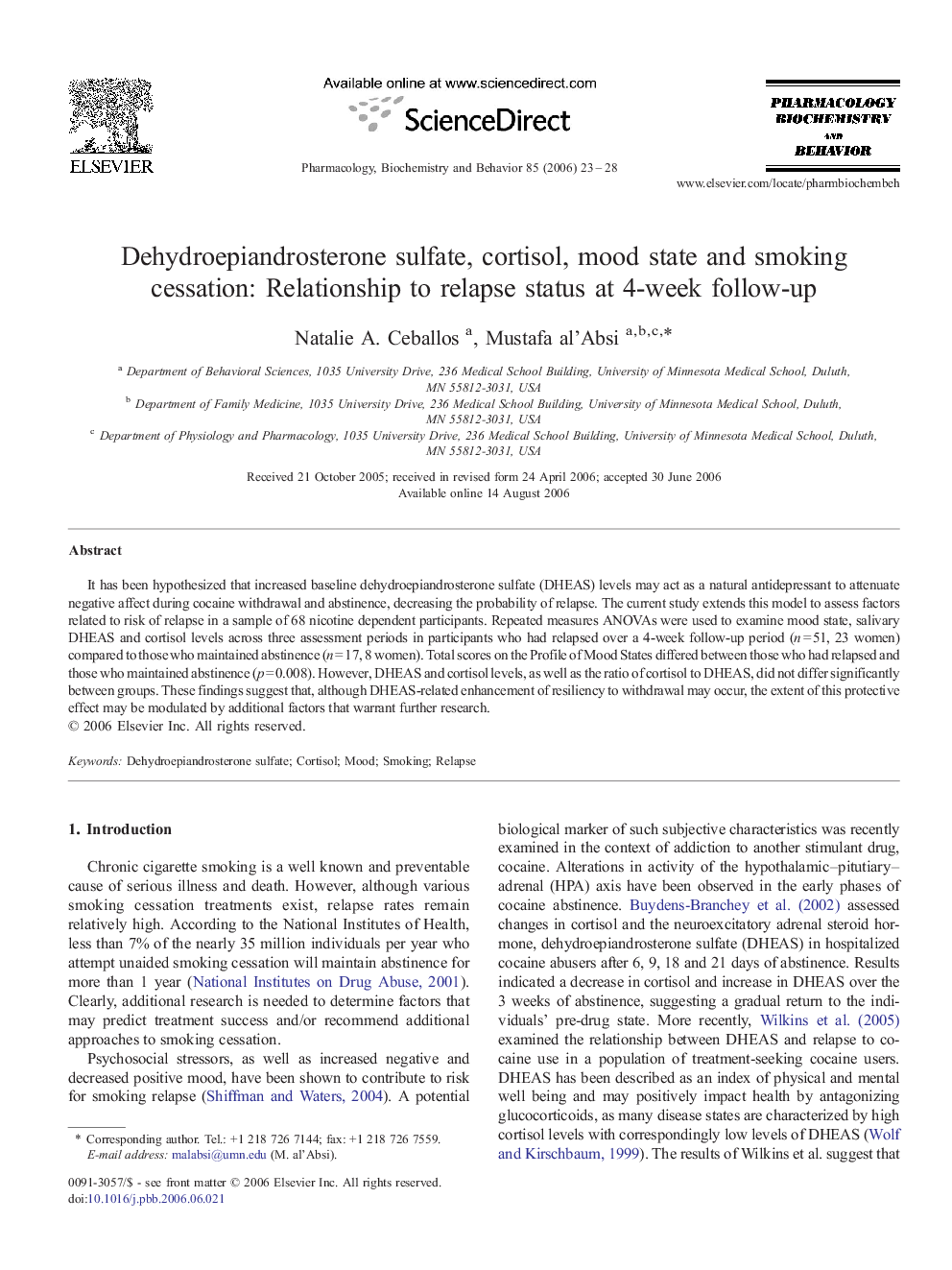| Article ID | Journal | Published Year | Pages | File Type |
|---|---|---|---|---|
| 2014479 | Pharmacology Biochemistry and Behavior | 2006 | 6 Pages |
Abstract
It has been hypothesized that increased baseline dehydroepiandrosterone sulfate (DHEAS) levels may act as a natural antidepressant to attenuate negative affect during cocaine withdrawal and abstinence, decreasing the probability of relapse. The current study extends this model to assess factors related to risk of relapse in a sample of 68 nicotine dependent participants. Repeated measures ANOVAs were used to examine mood state, salivary DHEAS and cortisol levels across three assessment periods in participants who had relapsed over a 4-week follow-up period (n = 51, 23 women) compared to those who maintained abstinence (n = 17, 8 women). Total scores on the Profile of Mood States differed between those who had relapsed and those who maintained abstinence (p = 0.008). However, DHEAS and cortisol levels, as well as the ratio of cortisol to DHEAS, did not differ significantly between groups. These findings suggest that, although DHEAS-related enhancement of resiliency to withdrawal may occur, the extent of this protective effect may be modulated by additional factors that warrant further research.
Related Topics
Life Sciences
Biochemistry, Genetics and Molecular Biology
Biochemistry
Authors
Natalie A. Ceballos, Mustafa al'Absi,
